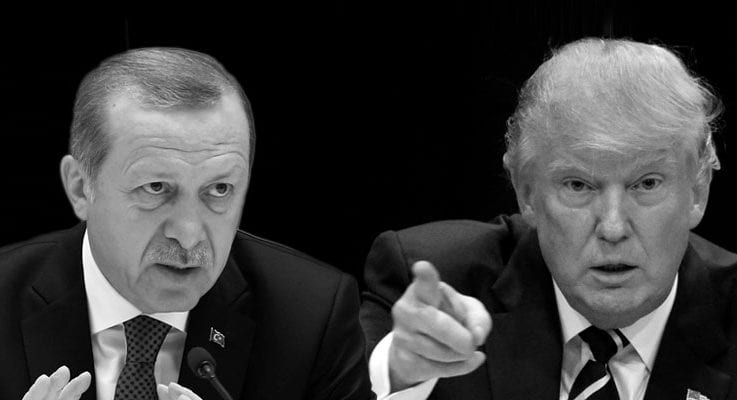By BARÇIN YİNANÇ, Hurriyet daily news
For decades military agreements have set the tone in US – Turkish relations. Turkey’s strategic importance during the Cold War outweighed everything else.
The refusal in 2003 to let U.S. soldiers use Turkish soil to attack Iraq left a deep mark on the U.S. military. At that pivotal point, the U.S. military held a grudge towards Turkey.
In addition to a rather “unfriendly” Pentagon, Congress’s hostility towards Turkey seems to have reached a peak.
The U.S. Congress has never been too friendly to Turkey, but still there has been times when Turkish caucuses in Congress had more than 150 members. Those caucuses no longer exist. Currently, there are five resolutions against Turkey in both Congress and the U.S. Senate.
That perhaps explains the no-show from congresspeople to the American Turkish Council’s (ATC) annual conference earlier this week in Washington.
“It seems a lot has changed in Washington over the last decade. In the past, we used to have some American friends of Turkey to come to the annual meeting. There are very few which showed up,” said a businessman who previously was active in organizing the conference.
Yet the ATC president likened the fact that the conference was even held this year to a Tiger Woods’ comeback. The U.S. player won the most important of all annual golf tournaments last Sunday, after a decade marked by problems.
“It has been really tough,” said General James Jones, president of ATC, during the opening of the conference on Monday April 15. The conference was postponed twice in 2018.
“We are here not to talk about what divides us but [what] unites us,” he said. But looking at the list of issues – Syria, Turkey’s purchase of the S-400 Russian missiles, Iran sanctions and taxes imposed on Turkey – the number of divergences appear higher than the convergences.
The Turkish – U.S. Business Council (TAİK) is trying to play an active role to help smooth relations. It took a lot of effort to organize this year’s conference. Participants from the U.S. business community were those already present in Turkey, and they did not need to be convinced. So it could have been better to attract more skeptics to the two-day conference.
Whatever the scope, however, keeping communication channels open always helps. In fact, the conference served as an opportunity to reiterate the interest shown to Turkey by the Donald Trump administration. The U.S. president personally received Turkish Finance and Treasury Minister Berat Albayrak at the White House while Albayrak was in town for the conference. That brings us to one major positive aspect of U.S.- Turkish relations. Trump and his Turkish counterpart, Recep Tayyip Erdoğan, enjoy good chemistry. Now, it seems there is another channel open between the two presidents’ son-in- laws. Jared Kushner, Trump’s son-in-law and principal advisor, conducted talks with Albayrak, Erdoğan’s son-in-law, and accompanied him to the meeting with Trump.
Kushner also attended the close of the conference held at the U.S Chamber of Commerce and emphasized the “tremendous desire” of the U.S. administration to see economic relations flourish.
Speaking ahead of Kushner, Turkish Trade Minister Ruhsar Pekcan called for the abolition of the tax imposed by the United States on Turkish steel and aluminum. Additionally, there has been no sign from Washington on whether Turkey’s demand to continue receiving an exemption from sanctions on Iran will be accepted. The exemption is due to expire at the beginning of May.
As to the thorny issue of Turkey’s decision to purchase S-400s, which led to U.S. threats to suspend the delivery of F-35 fighter jets, Mehmet Ali Yalçındağ, the president of TAİK, sounded optimistic about the prospect of a solution. Yalçındağ, whom
Kushner described as a friend during a reception at the U.S. Chamber of Commerce, enjoys special access to Trump’s son-in-law. He might be privy to more discreet information about the issue than others to justify his optimism.
Yet few in Washington circles shared his optimism. That raises the question of whether too much confidence is placed on the good chemistry between Trump Erdoğan to resolve the S-400 disagreement.
While good relations between the two presidents is an asset, it can also be a liability in view of the Congress’s negative outlook towards Trump. In other words, Trump’s positive stance on certain issues pertaining to Turkey might have a counterproductive effect, as it might further irritate a Congress controlled by
Democrats who are highly critical of both Trump and the Turkish government. Moreover, a group of businesspeople who held talks with congressional staffers this week were told that there is bipartisan criticism of Turkey in the Congress.









